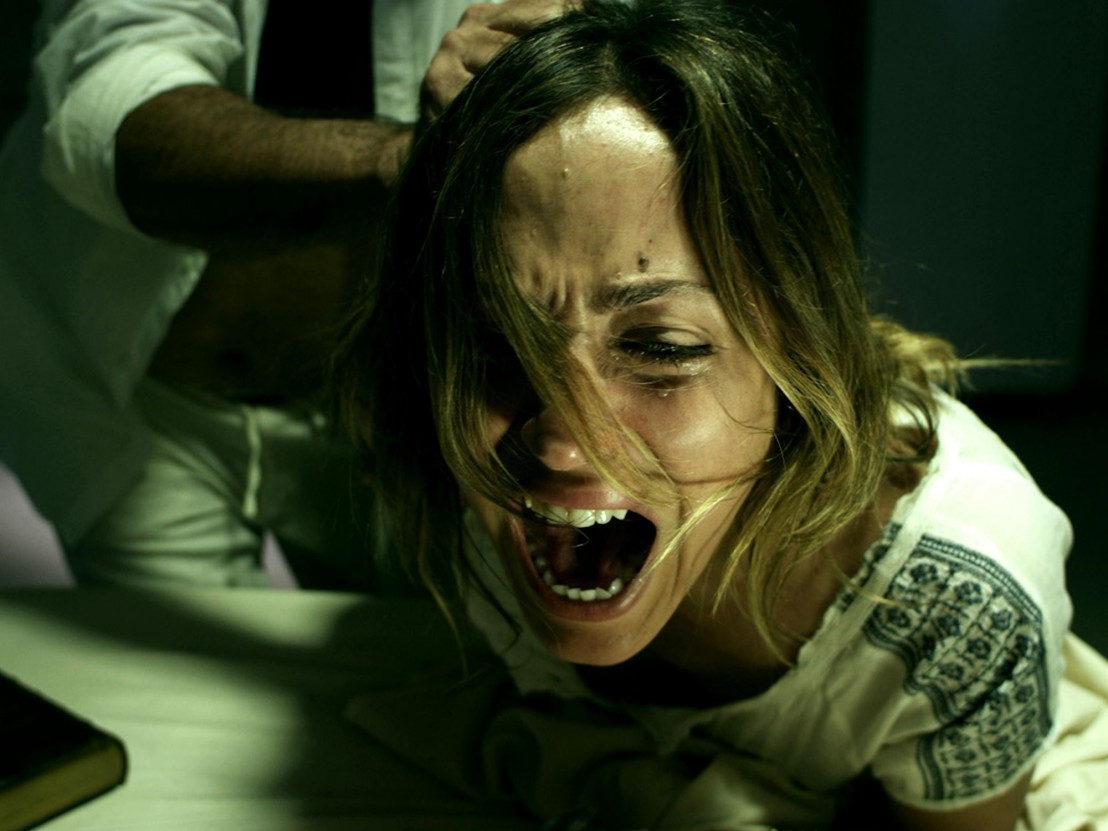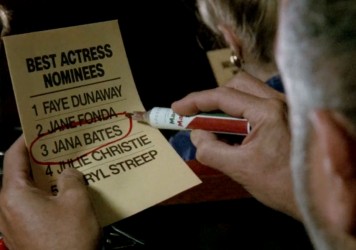
Sleeping rough near a cemetery on the outskirts of Barcelona, elderly Eloy de Palma (Lluís Marco) tells his teenaged granddaughter Alba (Clàudia Pons) a campfire story from his own boyhood: in the village of Alba’s great grandparents, the cemetery became a place of ghostly unrest shortly after the old priest, having served the community for 50 years, died and was buried there; when the people unearthed the priest to move his corpse to another graveyard, they discovered that he had in fact been a she all along. “Even the resting souls”, Eloy concludes, “rebelled against that abomination, when they were forced to share the scared ground with her.”
“I still think it’s not that bad,” comments Alba, who regards the patriarchal traditions of the Catholic church with a modernist’s scepticism. After all, Alba is herself, as Eloy concedes, “also a woman – young, but a woman nonetheless”. She may be following a devout, Bible-toting, white-bearded granddaddy wherever he leads, and pursuing a prescribed destiny to which she has had to sacrifice anything like a regular girlhood, but she is also, in her way, heralding a feminist revolution that will turn ancient gendered orthodoxies on their head – and she exhibits miraculous powers that might just mark her as the new messiah for a New Age.
We know this New Age is coming, because ‘s feature debut Asmodexia is formally structured around a three-day countdown to ‘the Resurrection’, set for 21 December 2012 – in keeping with the eschatology of the ancient Mayan calendar. As the day fast approaches in an unseasonably hot pre-Christmas period, this odd-couple grandfather and granddaughter walk the land with a pious sense of purpose, along the way liberating various lost souls from possession through exorcism rituals – while a mysterious leather-clad figure tracks them from a distance in a black van.
Just where Eloi and Alba are headed, with what intention, and ranged against precisely what enemy, is gradually pieced together as we witness not only their apocalyptic progress, but also an investigation by police inspector Diana (Marta Belmonte) into the strange trail that they leave in their wake, flashbacks to a happy-clappy cult that Eloy led in Chiapas 15 years earlier, and a parallel story about a clairvoyant woman, Ona (Irene Montalà), locked in a Barcelona asylum where pandemonium is rapidly breaking out.
The exorcism movie market is a crowded one, and most films on this theme follow in the footsteps – without ever quite managing to fill the shoes – of William Friedkin’s peerless The Exorcist. Accordingly, Asmodexia is all the more welcome as an addition to this subgenre for being such a radical departure from its predecessors. Alba may be only a little older than Linda Blair’s Regan, and may similarly be struggling with an adolescence that has turned her body into the battleground for a veritable Armageddon, but here it is not her head, but the viewer’s, that will be spinning. For this film, the “reverse side” of its models, leaves us constantly struggling to orient ourselves in an unfolding scenario that, though seemingly familiar, takes a digressive, meandering narrative path with no fewer twists and turns than the road walked by Alba and Eloy. The devil is in the details of a deftly ambiguous screenplay (by Carreté and Mike Hostench) that carefully withholds as much as it reveals.
In the end, everything is illuminated in a satisfying way, and even that title, at first so empty of any obvious reference, acquires a certain significance (that it would be ungodly to spoil). Perhaps the film’s greatest trick is to suggest that its events precede our viewing of them, and so to insinuate the idea that the new world to which Asmodexia opens the door is exactly where we are all living now. Some, no doubt, will be troubled at the way the film feminises an old men’s tale while simultaneously demonising its own feminism. Others, though, will shrug and conclude, along with Alba, “I still think it’s not that bad.” After all, any act of rebellious iconoclasm demands an inversion of the norms and values enshrined in the status quo – and in transforming the tropes of a well-established genre, Asmodexia also slyly upends our world view.
Asmodexia is released on DVD by Sharp Teeth Films 28 March.
Published 23 Mar 2016

By Anton Bitel
David Winters’ self-reflexive slasher from 1982, The Last Horror Film, is now available on DVD.

By Anton Bitel
Ben Wheatley serves up a sensational 21st century satire that’s funny and frightening in equal measure.

By Anton Bitel
Derek Mungor’s perspective-flipping horror, You Are Not Alone, is available on Blu-ray and DVD this month.